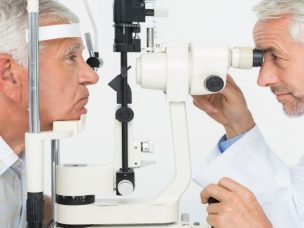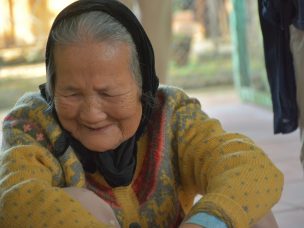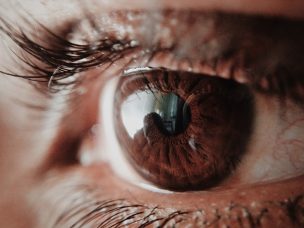Wet AMD
Wet AMD Diagnosis and Outcomes in Asian Americans
Previous studies have shown a disproportionately high incidence rate of wet age-related macular degeneration (AMD) in Asian populations. This excessive prevalence occurs in Asian patients in the United States and around the world. This finding has led researchers to believe that biogenetic markers may exist that affect the prevalence, presentation, and outcomes of Asian American...
AI Model Predicts Risk for Age-Related Macular Degeneration
A new artificial intelligence algorithm can predict risk for age-related macular degeneration (AMD), according to a study published in the April issue of Translational Vision Science and Technology. Alauddin Bhuiyan, Ph.D., from iHealthScreen Inc. in New York City, and colleagues used 116,875 color fundus photos from 4,139 participants of the Age-related Eye Disease Study to...
Parkinson's Drug Eyed as Treatment for Severe Macular Degeneration
A drug long used to treat Parkinson’s disease may benefit patients with a severe form of age-related macular degeneration (AMD), a small clinical trial suggests. One of the leading causes of vision loss in older people is a condition called dry macular degeneration. More than 15% of Americans over age 70 have AMD, and 10%...
How Medicare Status Affects Wet AMD Treatment
Researchers are seeking to understand the variances in the use of bevacizumab and ranibizumab for the treatment of wet age-related macular degeneration (AMD) among Medicare beneficiaries. This retrospective cohort study was performed using a sample from a three-year span of 100% Medicare claims data. The data were analyzed to determine whether ranibizumab or bevacizumab was administered...
Age-Related Macular Degeneration Study With Black Patients
In this study, the researchers sought to determine the features of age-related macular degeneration (AMD) in the Black Barbadian population. A random group of Barbados-born citizens 40 to 84 years of age was selected. A total of 3,444 participants completed examinations at the study site and had gradable macular photographs taken of both eyes. Data were...
Geographic and Socioeconomic Barriers Hinder Wet AMD Treatment
Healthcare professionals have cited that delayed treatment and non-continuation of treatment are concerning issues affecting wet age-related macular degeneration (AMD). Multiple factors can present barriers for patients to receive the proper diagnosis and treatment. It is imperative that individuals with AMD are diagnosed in the early stages of the disease and follow a professionally advised...
New Hope for Better Treatments Against Macular Degeneration
A number of new treatments for age-related macular degeneration (AMD), a progressive eye disease, are under development. AMD is a leading cause of vision loss in older people. About 11 million Americans have AMD, which affects part of the eye that allows you to see fine detail. There are two types: wet and dry. Wet...
Prevalence of Wet AMD Across Multiple Ethnic Groups
Research regarding the prevalence of age-related macular degeneration (AMD) across multiple racial/ethnic groups has been performed to study risk factors for AMD. Data from this study were taken from the second examination of the Multi-Ethnic Study of Atherosclerosis (MESA). The data were analyzed to determine the prevalence of wet AMD across several racial/ethnic groups. Participants of...
Age-Related Macular Degeneration Among Latinos
The Los Angeles Latino Eye Study (LALES) was conducted to determine the age- and gender-specific prevalence of dry age-related macular degeneration and wet age-related macular degeneration (AMD) in the Latino population. It evaluated 6,357 Latinos, ages 40 and older, from six census tracts in the city. Subjects were all self-identified Latinos. A complete ophthalmologic exam...
More Medical News













